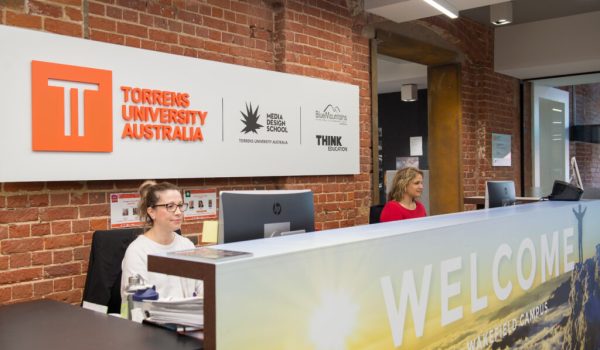A career as a nurse is highly rewarding. Nurses get to make a difference in people’s lives, and often be there for people during their most vulnerable moments. Given this vital role, it would be fair to assume that nurses are compensated well and enjoy the same level of respect as doctors. However, in many parts of the world, this isn’t the case. This disparity is why many nurses seek better opportunities abroad, particularly in countries that offer higher pay and greater recognition – like Australia!

If you’re considering nurse immigration to Australia, the information below will not only guide you but might just help you finalize your decision to take the leap.
Why should I become a nurse in Australia?
- Nurses are paid a competitive salary
- Excellent working conditions
- Nurses can have flexible work hours (full time, half time or on a casual basis)
- Nurses can work in safe and welcoming workspaces
- There are plenty of opportunities for career advancement
- Living in Australia offers a high standard of living
7 Tips for Successful Nursing Immigration to Australia
1. Understand the Australian health system.
Australia’s health system is renowned for its quality and accessibility, providing safe and affordable healthcare for all Australians. It operates under a mixed public-private model, with Medicare as the cornerstone of the public system, offering free or low-cost medical services and hospital care.
The private sector complements this by providing additional services and shorter waiting times through private health insurance. Australians can opt for private health insurance to access private hospitals and services not fully covered by Medicare, like elective surgeries, dental care and physiotherapy.
Nurses in Australia work in both public and private sectors, each offering unique experiences:
Public health sector – Public hospitals are often busier, especially during emergencies, and provide opportunities to work on public health initiatives and policy. Job security is high, and there are extensive training programs.
Private health sector – Nurses in the private sector typically enjoy more personalized patient care, stable hours, and potentially higher pay. Work environments tend to be less hectic than public hospitals.
2. Meet the registration requirements
The Australian Health Practitioner Regulation Agency (AHPRA) is responsible for the implementation of the National Registration and Accreditation Scheme across Australia. The Nursing and Midwifery Board of Australia (NMBA) is one of these national boards. It specifically regulates the nursing and midwifery professions, overseeing the registration of nurses and midwives, developing professional standards, and handling notifications, complaints, and disciplinary actions. To become a registered nurse in Australia, you need to meet several key requirements set by the NMBA. They are as follows:
- You need to have completed an accredited nursing program, such as a Bachelor of Nursing, from a recognized institution. If this qualification is from other parts of the world, you’ll have to include completing a qualification self-check, and possibly undergo further assessments.
- You must demonstrate your English proficiency via tests like IELTS, OET, PTE or TOEFL.
- You must have Professional Indemnity insurance arrangements in place.
- You need to show that you have recent nursing practicing experience, usually within the last 5 years.
3. Demonstrate English language proficiency
Australia requires all migrant healthcare workers to be proficient in English to ensure high-quality care. Nurses must demonstrate this by passing exams such as IELTS, OET, PTE, or TOEFL, as part of the registration process.
4. Choose the right visa category
For nurses looking to work in Australia, there are several visa options available, depending on your circumstances and qualifications:
- Skilled Independent Visa (subclass 189)
This is a point based for skilled workers who are not sponsored by an employer, state, or family member. It allows you to live and work anywhere in Australia permanently.
To be eligible for this, applicants must get at least 65 points (based on factors such as age, education, work experience and language skills), will need a positive skilled assessment, and must submit an Expression of Interest (EOI) and be invited to apply for this visa.
If qualified, applicants can include eligible family members in their application.
Apart from being able to work anywhere in Australia, this visa also has the benefit of having access to Medicare and certain social security benefits.
- Skilled Nominated Visa (Subclass 190)
This is a permanent visa for skilled workers, including nurses, who are nominated by an Australian state or territory government. This is also a points-based visa.
To be eligible for this visa category, applicants must be nominated by an Australian state or territory, the applicant’s occupation must be on the relevant skilled occupation list, applicant will need to score at least 65 points on the point test, and must submit an EOI, after which the applicant must receive an invitation to apply for the visa.
In this visa too, if qualified, applicants can include family members to the application.
And apart from being able to work anywhere in Australia, this visa also has the benefit of having access to Medicare and certain social security benefits.
- Temporary Skill Shortage Visa (Subclass 482)
This visa allows employers to address labor shortages by bringing in skilled workers from overseas.
To be eligible for this visa, applicants will need a sponsoring employer with a valid job offer, you must have the necessary skills and experiences for the nominated position and demonstrate proficiency in English.
The TSS visa has three main streams:
- Short-Term Stream: Allows applicants to stay for up to two years (or up to four years if an international trade obligation applies).
- Medium-Term Stream: Allows applicants to stay for up to four years and provides a pathway to permanent residency.
- Labor Agreement Stream: For workers nominated under a labor agreement with the Australian government. In this visa, applicants can bring their spouse and children, and the spouse will have unlimited work right during their stay.
This visa is a great option for nurses looking to gain work experience in Australia while potentially paving the way for permanent residency.
- Employer Nomination Scheme (Subclass 186)
This is a permanent residency visa for skilled workers, including nurses, who are nominated by an Australian employer.
To be eligible for this visa, the applicant must be nominated by an approved Australian employer, will need to have the necessary skills, qualifications and work experience for the nominated position, may need to demonstrate proficiency in English if required, and must meet all health and character requirements.
The Subclass 186 visa has three main streams:
- Direct Entry Stream: For individuals who have never, or only briefly, worked in Australia. Requires a positive skills assessment and at least three years of relevant work experience.
- Temporary Residence Transition Stream: For those who have worked for at least three years in Australia on a temporary skilled work visa (Subclass 482 or 457) in the same occupation with their nominating employer.
- Labor Agreement Stream: For applicants sponsored by an employer through a labor agreement with the Australian government.
Through this visa, both the applicant and their family members have the right to live, work and study in Australia indefinitely. They will also have access to Medicare and certain social security benefits.
5. Gather Required Documentation
To migrate to Australia as a nurse, gathering the required documentation is a crucial step.
- A valid passport and any name change documents.
- Employment statements from nursing roles in the past five years.
- Proof of English language proficiency.
- University transcripts and your degree certificate.
- A detailed CV that meets AHPRA requirements.
Ensuring all these documents are in order will facilitate a smoother application process for both registration and visa purposes.
6. Research job opportunities and salary expectations
Researching job opportunities and salary expectations is crucial when planning your migration to Australia, as it helps you make an informed decision and helps you in financial planning for the move. Researching potential employers and job roles also ensures you won’t be caught off guard or faced with dissatisfaction once you arrive in Australia.
In addition to this, some visas require proof of job offers or employment in specific sectors. Being aware of job opportunities can streamline the visa application process and increase your chances of approval.
7. Utilize Professional Support and Immigration services
Migrating to Australia as a nurse can be complicated if you try to navigate the process alone. Professional support from IMM CONSULTS can not only help you avoid the unseen pitfalls, but also help get you to Australia without getting tangled up in complications.




